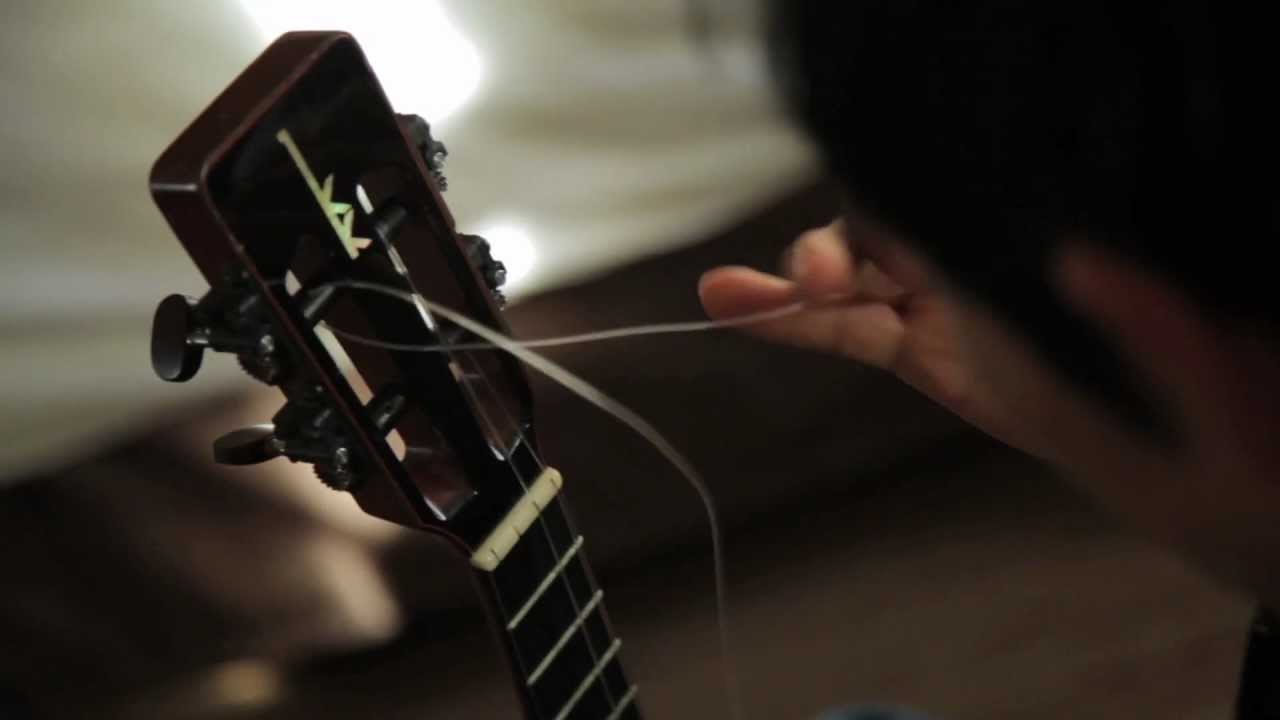EDITORS NOTE from Joz: 8Asians is proud to be a community co-presenter of various films at the 2013 Los Angeles Asian Pacific Film Festival, presented by Visual Communications.
Compared to the confusing story line of Stateless, Jake Shimbabukuro: Life On Four Strings tells a much stronger story of a Japanese American ukulele player. It started with a beautiful ukulele melody and effective close ups on the dancing fingers on the instrument. The film provided a complete view of how Shimbabukuro started this instrument, his family influence, how he started his career as a professional ukulele player and his personal life in dating and humanity work.
“I look at it almost like sports,” Shimbabukuro said in the film when he tried to explain what playing ukulele meant for him.
Born in Honolulu, Hawaii in 1976, Shimabukuro’s mother gave him an ukulele at age four and he quickly took an interest in the instrument. Shimabukuro initially gained attention in Hawaii in 1998 as a member of Pure Heart, a trio with Lopaka Colon (percussion), and Jon Yamasato (guitar). He was working at a music store in Honolulu when the group released its eponymous first album, featuring a sound and style somewhat similar to the Kaʻau Crater Boys.
When Shimabukuro started, he tried on the electric sound on his ukulele, and often played with different effects. Later he realized his insecurity and dependence on the effects, and decided to manipulate the sound of ukulele only with his hands.
“It’s about letting the instrument breathe,” Shimabukuro said.
Many Asian Americans find a commonality when Shimabukuro said he was uncomfortable with compliments because he felt he didn’t deserve those, something that rooted in the Asian culture. The film furthered described the long distance relationship between Shimabukuro and his then-girlfriend-now-wife Kelly Yamasato. Bitterness and tears came when he was performing to children in Sendai Japan after the big earthquake and tsunami in Mar. 11, 2011.
Shimabukuro said he wants to be as sensitive as possible in his music, because that’s how “you can feel what they feel.”
Director Tadashi Nakamura said one of the challenges in filming was there wasn’t any conflict about Shimabukuro, who is essentially a nice guy. Well, the beautiful melodies of ukulele, the subtle capture of people’s smiles and tears, the fast-moving fingers on the four strings, and sweats and aura of Shimabukuro make this a powerful documentary.








